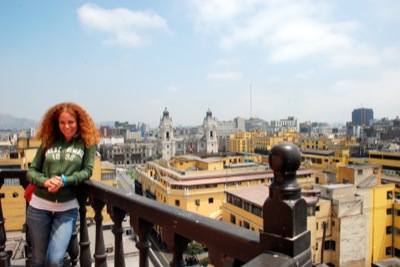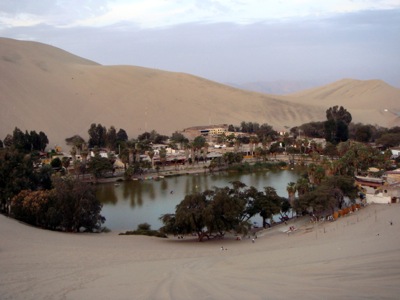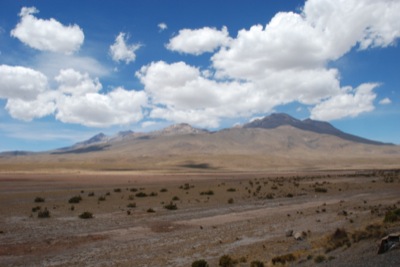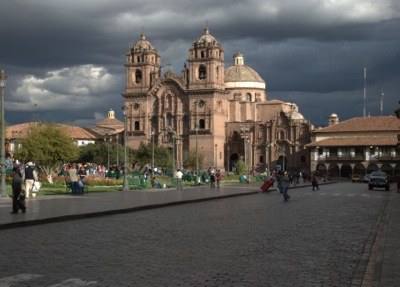As many of you remember, a few months ago I asked for your help on my research on the personality of the traveller. First of all, thank you for giving me 15 minutes of your time; it was very much appreciated! The good news is that there are finally results – it was hard but we made it! The complete results comprise about 100 pages of charts and tables, as we psychologists like, but using my blogging skills I’ll do a summary! 😉
The questionnaire, as you know, in the online format was translated into 3 languages: English, Italian and Spanish. The respondents were found through the use of social networks such as Facebook, Linkedin, and CouchSurfing and partly contacted personally by me during a long trip to South America.
I felt it was important to interview people who had an interest in travel, rather than a random sample, since the focus of my analysis was to investigate the weight that some personality traits may have in choosing the type of travel.
My analysis involved a sample of 740 individuals from 71 nationalities. Divided by continent, 68% of the survey’s respondents were of European origin, 26% from North and SouthAmerica and the rest distributed between Africa, Asia, Middle Eastand Oceania.

The sample was composed of 57% men and 43% women and was divided into 5 age groups ranging from 18 years old to the over-sixties; we can say that the largest group, 47%, was represented by individuals between 26 years old and 35 years old.
The analysis concerning the level of education showed that 49% had graduated, 25% have a Master’s or a PHD and 23% have a high school degree.
My questionnaire included questions concerning the choice of the trip and a personality test ITAPI-G (Perussia) created by the University of Turin in a European project and already translated into several languages.
Mine was an exploratory research. My goals were to understand how personalities factor into one’s choice of travel and to subsequently build more targeted searches. This article will highlight some of the findings. Anyone interested in learning more, please contact me personally.
My first question was: “Which are the most important personality traits in order to study the expectation about your travel?” The data showed the imagination and empathy of travellers; we see that those who have a great imagination and empathy expect to make new friends and learn a new culture and have very different personality traits than those who prefer a relaxing holiday.
I asked the subjects where they preferred to sleep while traveling and I can say that the gender of the respondents turned out to be very important; in fact we saw that 37% of women preferred to stay at a B&B compared to 27% of men, while the camping alternative was chosen by 14% of men compared to only 8% of women. The respondent’s geographical origin is relevant; the Europeans preferred to stay in B&Bs (37%) while the Americans were more likely to choose a guest house (42%). The most discriminating personality trait was revealed to be defensiveness; highly defensive people preferred to stay in a luxury hotel or B&B; less-defensive personalities preferred camping.

For me, the company with whom you travel determines a good part of the journey, so I wanted to investigate with whom my sample would prefer to travel. I found that 34% of men preferred to travel alone, compared to 23% of women, while 31% of women expressed a preference to travel with their partner or family; this alternative was chosen by only 24% of men.
Geographical origin of the respondents can also give us information; we observed that Europeans preferred to travel with their partners or family (35%) while Americans (37%) expressed a preference for traveling alone or with a friend.
Even in this case, defensiveness – as well as introversion – acquires a big weight for future choices made by similar people. People who are highly defensive, in fact, preferred to travel with their partners/family/group.
Very introverted people preferred to travel alone; I was very surprised at this result because I’ve always associated the desire to travel alone with the wish to make new friendships and an openness towards others – but those are just my motivations for traveling alone – yet many people choose this type of experience because of their natural disposition to be alone with their thoughts; anyway, I think this will be the starting point of my next research.
Since this topic fascinates me very much, I asked my travellers if they had never travelled alone and if they intended to do so in the future; the results of the two questions were exactly in line.
Only 85% of men versus 75% of women had already traveled alone and the same percentage said they would do it again. 92% of “Americans + rest of the world” had traveled solo at least once in their life and confirmed that the they would do it again; in Europe the percentage dropped to 74% and only 72% would do it again.
Besides origin and gender, it’s interesting to see which personality traits influences this travel choice most. We observed that very dynamic people with a low level of vulnerability and defensiveness preferred to travel alone; this figure should be integrated with that previous one, namely a tendency to introversion. I’d say that an introspective base is needed to address and enjoy the solitude at the same time, yet dynamism is necessary in order not to be “swallowed” and to transform the solo-travel in a rich opportunity for new experiences.
 How to organize your trip?
How to organize your trip?
66% of respondents said they rely on the internet, 18% said they decided on the road, while the most defensive and vulnerable people relied on tour operators.
I asked the travelers what was the picture they have of themselves “on-the-road”, based on the credited concept that travel is a comparison between an ideal self and a real self. (“The images of the persons traveling are due to their representations of reality and also of the images of themselves traveling, a concept that brings with it a set of expectations, identifications, status symbols and conventions of social desirability.”–Kaplan).
The touristic experience can change or confirm the idea that one has of oneself, may allow for expression of self – or still better: “several possible selves” and – as always happens in life – does not mean that it necessarily leads us to a better experience. In the world of tourism, today, there is much talk of “dream trips”; careful though, because some dreams can turn into nightmares! This is why I think that in the world of tourism it is often the case that we must calibrate our dreams, considering what we can actually deal with and try to create a product-trip as close to reality as possible.
42% identifed with the image of himself “in a night market in Thailand”. We might say that this question is actually semantically related with expectations and that this response might be related to “learn a new culture” – and “while I’m trekking in the Andes”, chosen by 35%, to the “contemplation of nature”.
Defensiveness was the personality trait that mostly discriminates the self-image “on-the-road”; the most defensive subjects have a picture of themselves on-the-go, “while I shop in New York”, comparable to an expectation of fun.
I asked them what the main rationale was that normally directs their travel choices. In every choice, there may be physiological reasons like the need to relax and recharge, often also linked to a need for evasion and escape from daily life; interpersonal needs, such as carving out time for their families and their loved ones, compared to what they are used to; or to just have the opportunity to make new friendships, expand their circle of friends. Everyone can have psychological reasons such as the need to find themselves, self-observation and self-listening; social motivations such as prestige, the idea of asserting that pursued ideal self. The ability to implement behaviors that usually they do not undertake – maybe just because such behaviors are not much socially accepted or far from the image of themselves in everyday life – can be understood as an escape from social constraints rather than from those space constraints in everyday life.

“Finding themselves” appears to be the main driver of the people I interviewed, with 32% choosing this rationale, followed by “the need for relaxation” (20%) and “escape” (18%).
If we evaluate the responses with respect to the geographical origin we see that Europeans (31%) and Americans (34%) identify “find yourself” as the primary motivation while 22% of Europeans identify the “escape” as their primary motivation for travel. Furthermore, 25% of Americans see as crucial the ability to “let go to behaviors that they do not usually undertake”. In all cases we see that most people who embark on a journey seeking a break with everyday life, devote to an “elsewhere” the role of trying to find things that are impossible in everyday life.
Defensiveness appears to have the most discriminating weight; subjects who are highly defensive are motivated to travel by the need for relaxation and escape.
I like to think, as Dall’Ara (1990) says, the motivations for tourism can be grouped into three distinct areas:
that of the “self”;
that of the “other than self”;
that of the “within self”.
I personally think that the travel experience encompasses these components more in the result than in the motivation. You cannot know in advance how much a trip will change these three areas; you can imagine that, depending on the context and on the lived moment you are going to experiment, but in this case that can only be seen as a dream or a constructed experience. The strong impact happens on the way back, often changing these three areas. Traveling, we experience our boundaries – and I am talking about the physical ones, such as fatigue, endurance, cold or hot, and our social boundaries as the relationships with whom we decide to travel or jump into a new culture with other rhythms, other conventions, other flavors. And within self, you can never predict what effect a trip will cause inside each of us; there are experiences that modify ourselves with the speed and impact that only a trauma can have, but luckily, we nearly always tie a positive change to the trip. In my opinion, as a psychologist and a traveler, I believe that travel can have an impact on the whole area of self. It can have a strong and deep impact, so much so that we should be led by someone in coming back to reality, in order to let this experience lead to real change or at least to a different understanding of the self. I like to think that there may be a “travel therapy”, but I’m still working on this!
 Che ti Porto? Racconti di Viaggio e Gioielli dal Mondo
Che ti Porto? Racconti di Viaggio e Gioielli dal Mondo

Very good and interesting job, but the next time I want to participe in the next one. Good luck in you life.,,
Ciao e buona fortuna, io stoi apprendendo la lingua italiana per questo no scrivo molto in italiano ..,,
Interesting but two sims criticisms. One surveys like this always attract people who like doing surveys. I never do them! So did you make any attempt to assess this systematic error? Secondly you are ignoring basic statistics. With a same size of 720 you have an error of about 4% that is there is a 68% chance that an actual number you quote of 32% being from 28% to 36% so many of your comparisons are false as not statistically significant as error bars overlap. So be careful!
Interesting research, it would be interesting to get more data on all this. Have you considered asking hostels or other traveler orientated accommodation to assist in interviews?
Is there anywhere we could see more graphs and data?